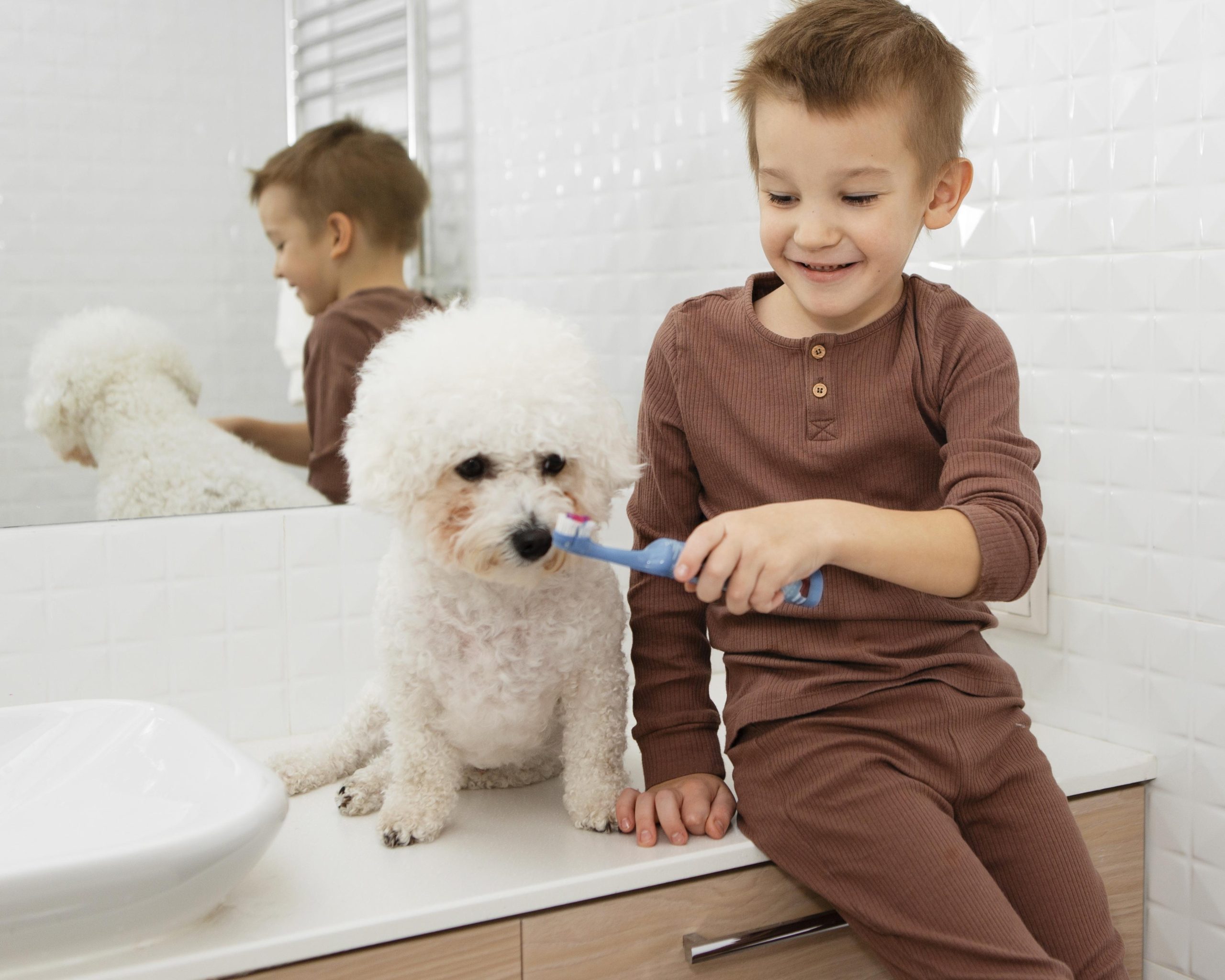
As a dog owner, you have probably had that moment when your pup comes in for a kiss, and their breath hits you like a wall. Bad dog breath, or canine halitosis, isn’t just an annoyance it can be a sign of deeper health concerns or just plain poor hygiene.
Having spent years working with dogs and digging into the best pet care practices, I have put together this guide to help you tackle bad breath naturally and effectively. I will walk through vet-approved solutions you can actually stick with, plus a few handy tips to keep those puppy kisses minty fresh. Ready to dive in? Let’s fix that dog breath together!
Why Does The Dog’s Breath Smell Bad?
Let’s examine the true cause of that bad dog breath before moving on to remedies. Tartar, plaque, and poor oral hygiene are typically the main reasons. The stench begins when food particles become lodged in your dog’s mouth, where they serve as a haven for bacteria.
However, it’s not always a matter of hygiene. Additionally, bad breath may indicate more serious conditions like gingivitis, dental disease, or even systemic problems like kidney or digestive disorders. One important piece of advice is to contact your veterinarian right away to rule out anything more serious if your dog’s breath consistently smells like ammonia. Have you observed any additional symptoms? Let’s discuss it.
Here Is How I Keep My Dog’s Breath Fresh
1. Brush Your Dog’s Teeth Regularly
Brushing your dog’s teeth is the number 1 way to fight bad breath and plaque. Use a dog-specific toothbrush and enzymatic toothpaste, never human toothpaste (it’s toxic to dogs).
Start slow: let them sniff and taste the toothpaste, then gently introduce the brush. Keep it calm, reward with treats, and make it fun.
Do it 2–3 times a week, and stick with trusted brands like Petrodex or Virbac. Dogs love the flavors.
2. Add Dental Chews and Playthings
Dog breath can be naturally freshened with dental chews and toys. Seek out goods like Greenies or Oravet chews that have been approved by the Veterinary Oral Health Council (VOHC). These treats reduce bacteria that cause odors by scraping plaque while your dog chews.
Additionally, saliva production is encouraged by rope toys or rubber chew toys like Kong, which naturally cleans the mouth. Antlers and hard bones should be avoided since they can break teeth.
For a breath-freshening treat your dog will love, freeze a Kong toy filled with plain yogurt.
3. Add Breath-Freshening Foods to Their Diet
There are foods that naturally fight bad breath. For example, parsley contains a natural deodorizer called chlorophyll. Add a small amount to your dog’s food after finely chopping it (1/4 teaspoon per 10 pounds of body weight). Apples and carrots are also excellent because, while your dog chews, they scrub teeth naturally.
Garlic, onions, and grapes should not be fed to dogs because they are poisonous. Before introducing new foods, always consult your veterinarian. Consider including a slice of apple.
4. Use Water Additives or Oral Sprays
Oral sprays and water additives are easy, low-effort methods to enhance canine oral hygiene. Products that neutralize odor and lower plaque include TropiClean Fresh Breath and Petkin Dental Spray. Every day, add a capful to your dog’s water bowl or, as directed by the product, spritz them straight into their mouth.
My Experience: After using TropiClean for a week with my rescue Lab, Max, I noticed that my breath was fresher. For busy pet owners, it’s revolutionary.
5. Schedule Regular Veterinary Dental Cleanings
A professional dental cleaning under anesthesia might be required for chronic bad breath. In addition to removing tartar, veterinarians use ultrasonic instruments to look for underlying problems like tooth decay or gingivitis. Most dogs benefit from annual cleanings, but this is especially true for breeds like Chihuahuas and Bulldogs that are more likely to have dental problems.
6. Keep Your Dog Hydrated To Avoid Dry Mouth
Because saliva naturally cleans the mouth, dehydration can make bad breath worse. Make sure your dog always has access to clean, fresh water. Dogs love running water, so think about getting them a pet water fountain to encourage drinking.
7. Monitor for Health Issues
If you’ve tried these dog breath remedies and the odor persists, it’s time for a vet visit. Bad breath can signal dental infections, diabetes, or gastrointestinal issues. Regular checkups catch problems early, saving your dog discomfort and you costly treatments.
My friend’s Golden Retriever had chronic bad breath despite regular brushing. A vet visit revealed an abscessed tooth, which was treated promptly, restoring her pup’s fresh breath and energy.
Bonus Tips for Long-Term Fresh Breath
- Probiotics: Add a dog-safe probiotic to support gut health, which can influence breath.
- Coconut Oil: A small dab (1/4 teaspoon per 10 pounds) can fight oral bacteria.
- Regular Exercise: Active dogs produce more saliva, naturally cleaning their mouths.
My Final Thoughts
Do you want more sweet dog kisses? A little care and consistency go a long way. Try breath-freshening foods, give them dental chews, brush their teeth frequently, and monitor their general health.
Choose one or two tasks to begin today; you don’t have to finish them all at once. Before you know it, you’ll notice (and undoubtedly smell) the difference.
GIPHY App Key not set. Please check settings